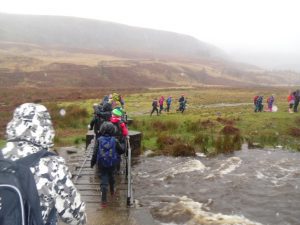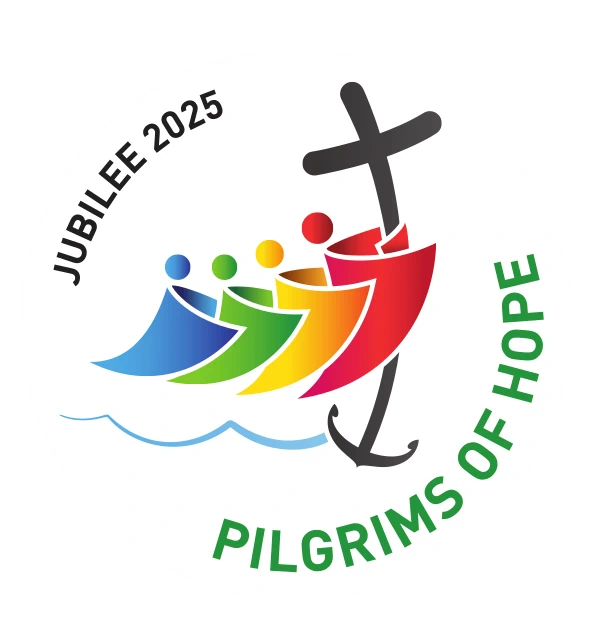Aims & Objectives
The aim of Geography teaching at St Mary’s Catholic Voluntary Academy is to stimulate the children’s interest and understanding about the world in which we live. We start, in EYFS, by learning about our immediate environment and continue by finding out more about the United Kingdom, the country in which we live, and the wider world including all of the continents and their seas. We aim to help our children value the world in which they live and develop a sense of identity within it. We compare our own way of living with that of others and explore both physical and human features of places to understand how these things impact the way a country develops. We think about the impact that climate change has on our developing world.
Through outdoor learning we develop our understanding of fieldwork and map skills. We encourage children to work co-operatively and with perseverance to become more aware of their surroundings and their location within the wider world.
The objectives of teaching Geography at St Mary’s Catholic Voluntary Academy are:
- Name and locate cities & counties of the UK
- Know the world’s continents and oceans
- Explore key topographical features of a place such as hills, mountains & rivers or types of coasts
- Understand geographical similarities and differences through the study of human and physical geography
- Identify the position/ significance of latitude, longitude, equator, N & S Hemisphere, Tropics of Cancer & Capricorn, Arctic & Antarctic Circle & time zones (incl. day & night).
- Understand processes that give rise to key physical & human geographical features of the world, how these are interdependent and how they bring about spatial variation/change over time
- Describe types of settlement, land use, economic activity including trade links.
- Describe the distribution of natural resources including energy, food, minerals & water in the continents & countries studied.
- Use fieldwork to observe, measure & record human & physical features using a range of methods, including sketch maps, plans, graphs& digital technologies.
- Interpret a range of sources of geographical information, including maps, globes, aerial photographs and Geographical Information Systems (GIS).
- Use Ordnance Survey maps at different scales.
- Use the eight points of a compass, symbols and key (including the use of Ordnance Survey maps) to show knowledge of the United Kingdom and the wider world.
How the Subject is Planned
We use the National Curriculum scheme of work as the basis for our planning in Geography, but we have adapted this to our local context, building on the successful units of work already in place. We ensure that there are opportunities for children of all abilities to develop their skills and knowledge in each unit, and we plan progression into
the scheme of work, so that the children are increasingly challenged as they move through the school.
Foundation Stage
The principles of the Early Years Foundation Stage underpin the opportunities given to our youngest children to support them in learning Geographical concepts from an early age through play, observation and careful questioning to extend their thinking further.
In Foundation Stage children develop their understanding of the world through exploration and play – they are supported with this through a balance of child-initiated and adult directed activities. Children are able to access a wide range of resources such as globes, maps, non-fiction books such as atlases and artefacts from other places to stimulate curiosity and interest further. We encourage outdoor play as much as possible. Such experiences enable young children to develop an understanding of their world and their place within it.
Key Stage One and Two
See Knowledge Matrix documents for overview of themes and topics covered in Key Stages One and Two.
Teaching Approaches
The learning environment in Geography is managed in such a way as to facilitate different styles of learning.
Opportunities are made for:
- whole class teaching
- group work, organised according to appropriate criteria (i.e. ability, mixed ability, friendship, etc)
- one to one teaching
- conferencing
- collaborative and active learning in pairs or groups
- independent learning
Classrooms and outdoor areas provide a stimulating and purposeful learning environment, including thought provoking and stimulating displays that include knowledge webs and helpful resources that document the learning journey through Geography in the class and outdoors too.
Marking feedback reporting
Termly assessments are made of pupils’ work in Geography in order to establish the level of attainment and progress and to inform future planning. Formative assessment is used to
guide the progress of individual pupils. It involves identifying each child’s progress in areas of the Geography curriculum, determining what each child has learned and what therefore should be the next stage in his/her learning.
Resources
Resource file
Geographical Association Website
Cross-curricular
Staff are encouraged to develop cross-curricular links with Geography and other subjects to provide a relevant and meaningful curriculum for pupils.
Links to Community, Locality and Trips
- Year 1 visit to the seaside, Year 3 Roman Lakes, Year 5 Crowden Valley (Peak District) Year 6 Torrs Hydro (New Mills).
- Local trips in/around Marple/Marple Bridge involving focus on fieldwork/map skills and human/physical features
- Opportunities for visitors from local community to enhance and contribute to topics eg. assemblies and interviews.
- Fairtrade assembly: subject co-ordinator
- Global Learning assembly: subject co-ordinator
Role of the Subject Leader
- The Subject leader has a variety of roles. These include:
- Taking the lead in policy development and quality assuring Geography knowledge webs, resources and Geography plans throughout the school
- Supporting colleagues in their development and implementation of Geography knowledge webs, resources and Geography plans and in assessment and record-keeping activities
- Monitoring progress in Geography and advising the Senior Leadership Team on action needed; taking responsibility for the purchase and organisation of central resources for Geography
- Using release time to support colleagues
- Keeping up-to-date through research and continuing professional development and attendance at Geography co-ordinators meetings



